Changing Organizational Culture: A Complete Guide
Published: 26 December, 2022
Culture Change
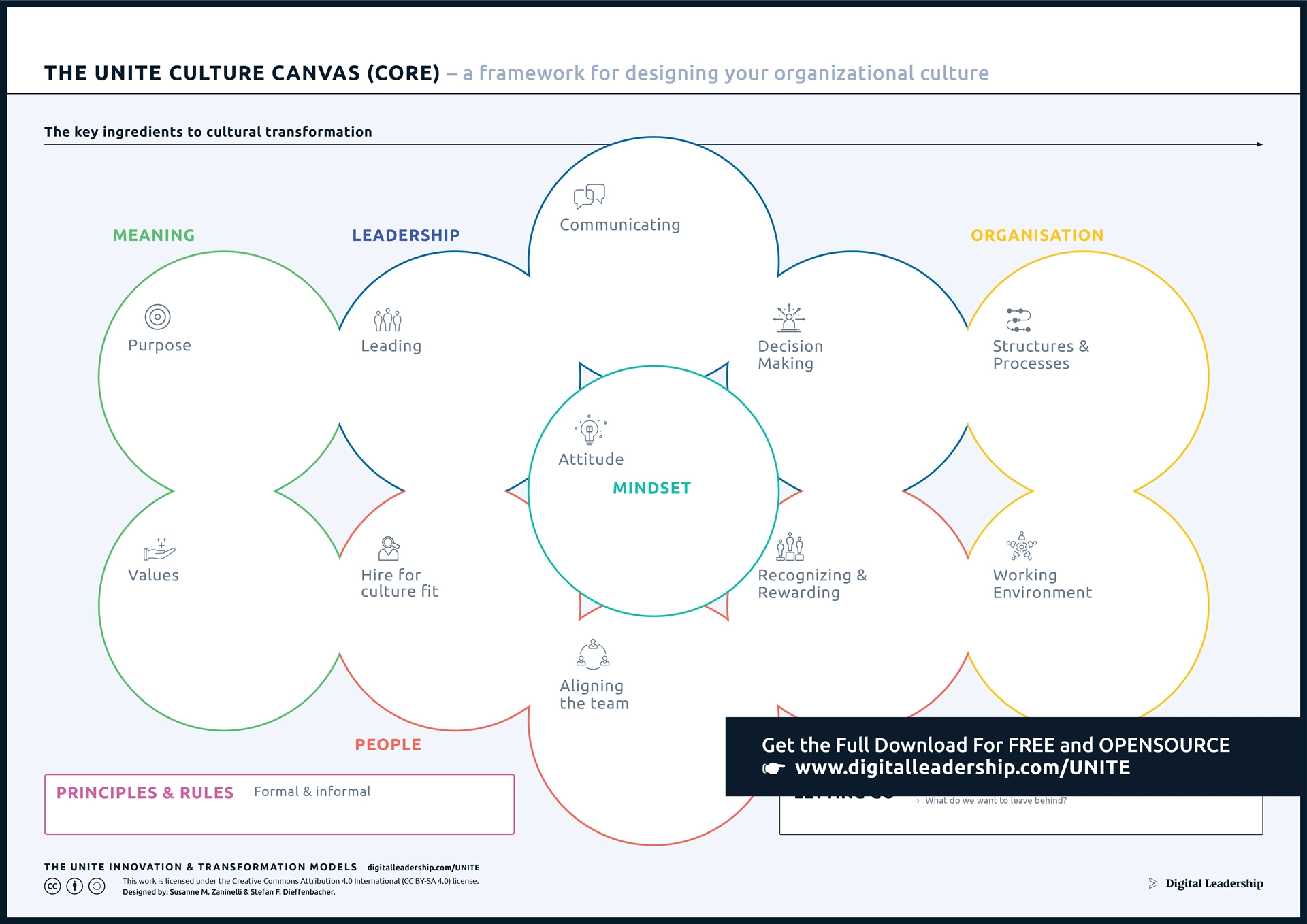
Table of Contents
Organizational Culture lies at the root of what makes a company successful, and yet it can be hard to grasp or define, much less actively cultivate. In many ways it is like the air we breathe, crucial to our survival, at the same time invisible.
Everyone seems to know that organizational culture is foundational to innovation, citing principles like willingness to experiment, co-creation, tolerance for failure, non-hierarchical structures and team spirit. Yet, if innovation culture is so important, why do many companies fail to achieve it?
One reason is that companies often think they need to change their entire organizational culture to one of innovation. But you actually do not want to create a uniform culture across the entire organization. Rather, you want to allow a new innovation-fostering culture to emerge when you are transforming your organization or doing entirely new things. The same culture cannot meet the very different requirements of error-free execution on a large scale and openness to experiment in the innovation team.
The widespread approach of trying to create cultural change through a change in organizational structure alone is marked by many setbacks and is rarely successful in changing culture quickly and sustainably. Why? Because the root of culture, our collective mindset, is not included. If individuals understand their current mindset, why they need to transform it, and what they are as an organizational culture aiming for, they will be much more likely to “be the change they want to see.”
In this article, we discuss how you can begin changing organizational culture in order to inspire and encourage innovation. Organizational development is a medium- to long-term project that requires a dedication of many resources, but the rewards are great for the company that can match their organizational structure to their needs and their customers’ expectations.
What is Organizational Culture?
What are your business’s priorities, attitudes, and personality? These reflect your Organizational Culture.
Your Organizational Culture is going to play a pivotal role in any planned change because it impacts how your people will respond to new situations, roles, and expectations. Organizational Development nearly always includes an evolution of your Organizational Culture, as well, because your culture has so much impact on how you do business.
When we help organizations develop their Innovation Culture, we try to understand what makes that business unique. How are their priorities revealed by the way they do business? Some important key aspects of your Organizational Culture say a lot about what you value.
Key Aspects of Organizational Culture
Your Organizational Culture has a tremendous impact on your business’s success. Culture drives business—it makes customers feel welcome, inspires employees’ best performances, and facilitates the kind of innovation that establishes your relevance for years to come.
But what is the shape of Organizational Culture? We think there are some key aspects to Organizational Culture that both influence and reflect the overall mission and approach a business is taking.
Leaders and their roles
From where does the organization draw its leadership, and how does it empower those leaders?
A top-down approach to management creates a certain kind of culture – often detached from the workforce, occasionally adversarial. While this has its point and its purpose, it cannot ever be anything more than what it is.
On the other hand, if management is pushed further down the hierarchy and drawn from different ranks, and empowered to make decisions closer to where those decisions are put into motion, workers feel more connected and more responsible to carrying out the business’s mission. There are benefits here, but only if the highest levels of managers are willing to relinquish some of their perceived power.
Company values that matter
Writing and promoting a mission statement is important; ensuring your company is living up to the standards described there is even more important.
Claiming to be for doing business a certain way, while at the same time performing otherwise, erodes trust between you, your employees, and your customers.
Make sure your policies and HR directives align with how you portray your work in your values and mission statements. Build incentives into your performance evaluations and compensation structure to reward people who best embody your values. Those values have been articulated for a reason—don’t let them be just for show
A productive employee experience
While every job includes some aspects of work that we don’t love—or sometimes even like—a positive Organizational Culture allows for an overall productive employee experience in which workers feel useful, valuable, and appreciated.
An effective employee experience lets workers feel secure today and includes a vision for tomorrow.
The UNITE Organizational Culture Canvas

Designed by: Susanne M.Zaninelli & Stefan F.Dieffenbacher
We created the Culture Canvas in collaboration with more than 30 experts from academia and industry to identify and map the key aspects of an organization’s culture. When we set out to understand, describe, discuss, question, shape and renew our organizational culture, we need a tool that will render culture understandable, tangible, and actionable.
The Organizational Culture Canvas is such a tool. It enables a group to immediately understand the most important factors and how they interact. Although we will focus on applying the Organizational Culture Canvas to the field of innovation, you can apply this canvas to any type of organizational culture.
Identifying the gaps between your current culture and the culture you aspire to, using the color spectrum we will introduce, helps you focus and strategize your transition from one state to another. Gaining a solid understanding of how your organizational culture currently operates will be critical in that process. Habits of thinking and acting can be difficult to change; understanding their roots is critical for finding ways to transform them.
Changing Organizational Culture Importance, and Why Do We Need a Culture Change?
Why does your organization need a culture change? Likely because the world on the outside of your business is changing quicker than the world inside of your business. In other words, if the change rate outside exceeds the change rate inside, you can bet the end of your business is coming, and soon. That’s why adopting an innovation culture as part of your daily business activities is so vital to ongoing success.
To evolve, we need to become aware of our own mindset, the window through which we view the world, and the unconscious filter we have acquired to decide what is right and wrong. Views and skills we acquired in earlier stages of mindset cannot be skipped or erased. As our abilities to understand and process expand with each mindset development, we are increasingly able to deal with complexity and better understand how different things relate to each other. We learn to sense, identify, and deal fruitfully with our own feelings and needs, and those of others. In this way, we integrate the qualities of previous mindsets, which makes the window through which we view the world wider and wider and our view more and more expansive.
This type of individual personal development is critical for the evolution of culture within organizations. Individuals are the foundation of culture. Our personal abilities stem mostly from what we subconsciously learned in our childhood and limit not only what we can do as individuals, but also what we can achieve as organizations. Changing the organizational culture thus requires personal internal work.
When is it Time for an Organizational Culture Change?
How can you recognize the time for a change in Organizational Culture?
We believe leaders know it’s time for a change often earlier than they like to admit. Strong leaders recognize slowdowns in innovation, slips in quality, other organizations sliding past.
When your Organizational Culture is no longer contributing to a competitive advantage, it’s time to make a change.
When your business goes through a traumatic event—bankruptcy, change in leadership, major shift in business environment, significant event—it’s time for an Organizational Culture change.
It’s time for an Organizational Culture change if your major metrics fail to meet ongoing needs. When your workers feel like they can’t communicate, it’s time for a change in Organizational Culture.
Tips for Changing Organizational Culture Effectively
The keys to effectively changing your Organizational Culture are perhaps unsurprising, but they deserve articulation.

Incorporate The Whole Organization
It’s vital that all levels of your organization buy into your Culture change. Communicate the importance of the change and clearly state everyone’s role in the process.
Build a Healthy Workspace Environment & Build Connections Between Team Members
Your Business Model Environment and your Organizational Culture will always necessarily be connected. Acknowledging the influence they have on each other will make it much easier to bring them into alignment. A healthy workspace environment that encourages connections and collaboration creates a positive situation that will help Organizational Culture change effectively. After all, change can only occur when everyone feels seen, valued, and supported.
Help People Identify Their Own Reasons for Change
People adapt to change better when they understand how it will be helpful to them. Use your positive workplace environment to communicate the advantages people will experience as a result of the change you’re enacting.
Align your Organizational Culture with Strategy & Processes
Your Organizational Culture should be integrated into your overall Innovation Strategy and the processes you’re using to continue developing the ways you bring value to your customers.
If your culture doesn’t reflect how you value the development of innovation, then you should be enacting changes, clearly.
Effective Organizational Change is only possible when all your processes align with your overall plan.
Align Culture Change Within Your Organizational Values
Finally, you can help ensure successful Organizational Change by aligning your change efforts to your Organizational Values, and vice versa.
Without all of your objectives and attitudes correctly in line, it’s very difficult to guide your business at all, let alone through the turmoil of Organizational Culture change.
Changing Organizational Culture FAQs
What are the Advantages of Culture Change?
There are many advantages to Organizational Culture change, including finding ways to continuously leverage your competitive advantage in the marketplace and ensuring that you have the right approach to innovation.
What are the effects of change in culture?
A successful change in culture helps your business stay competitive and helps retain quality employees.
What is an Example of Cultural Change?
Some Organizational Culture Change examples include:
- A new leadership team brings personnel from another business
- Changes in the business result in major cost savings being necessary
- Managers decide to be more visible on the factory floor
- IT doesn’t document their work, and it’s time to change that
- New requirements have been added by the controlling governmental agency
- Inefficient policy needs to be replaced
The UNITE Business Model Framework: A Framework for Innovation Success
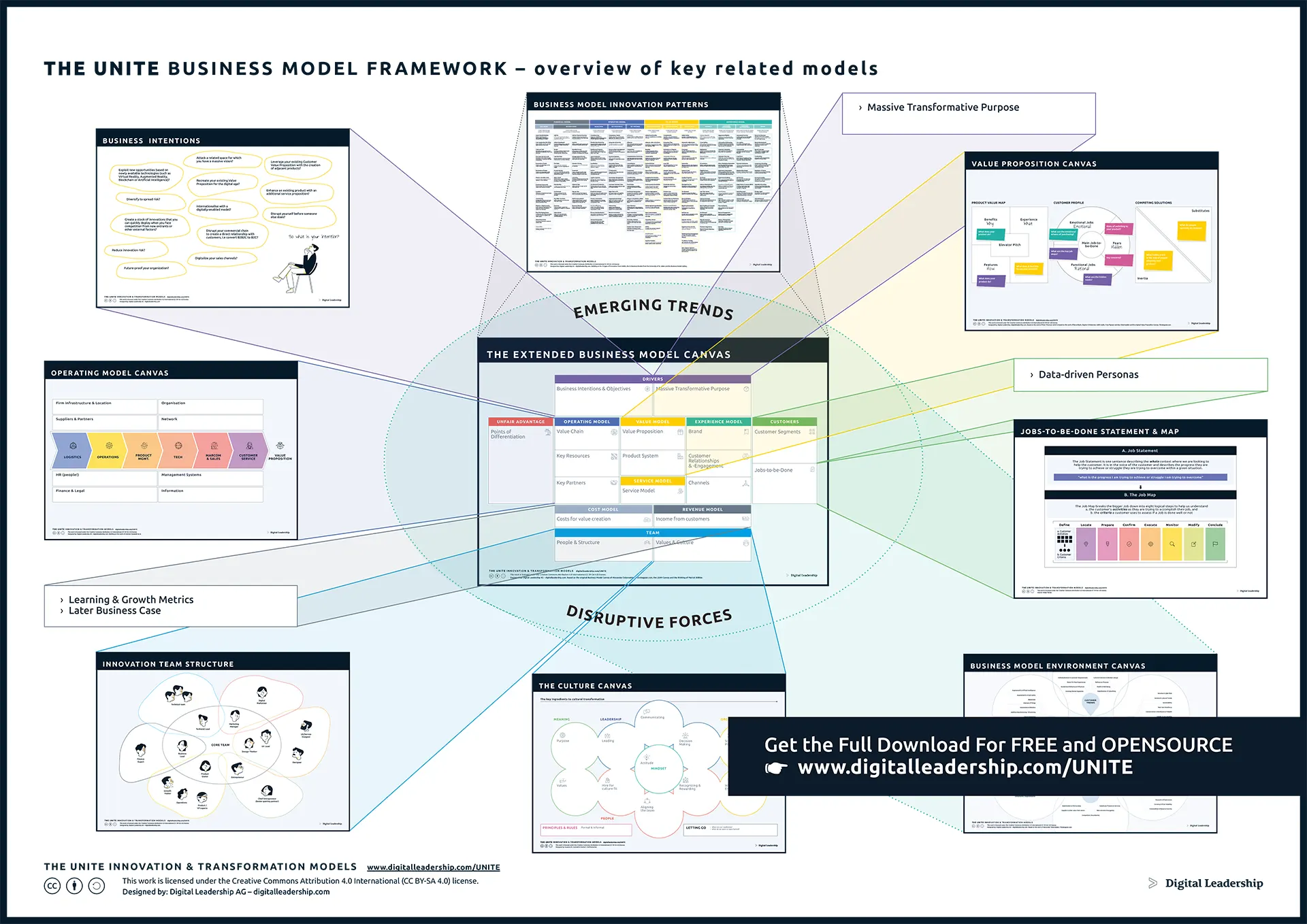
Designed By: Digital Leadership AG

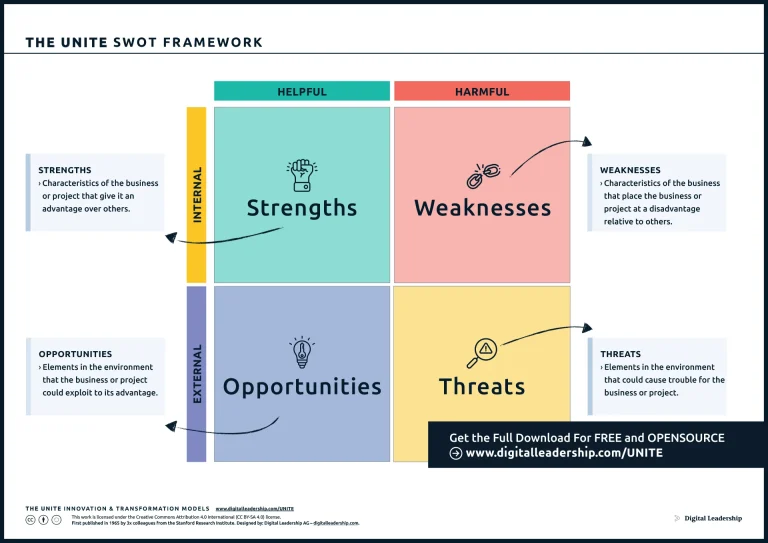









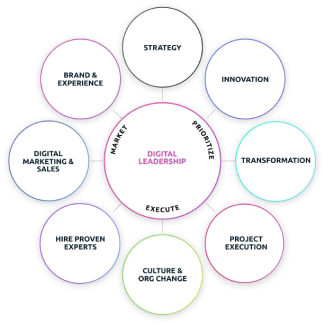

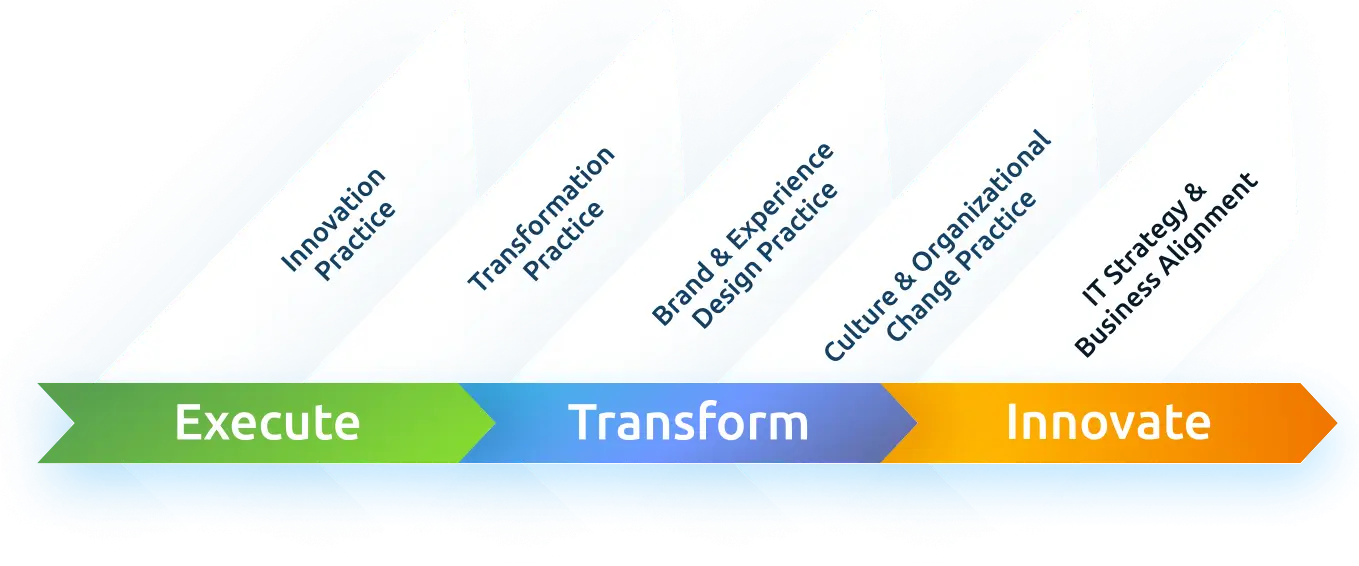











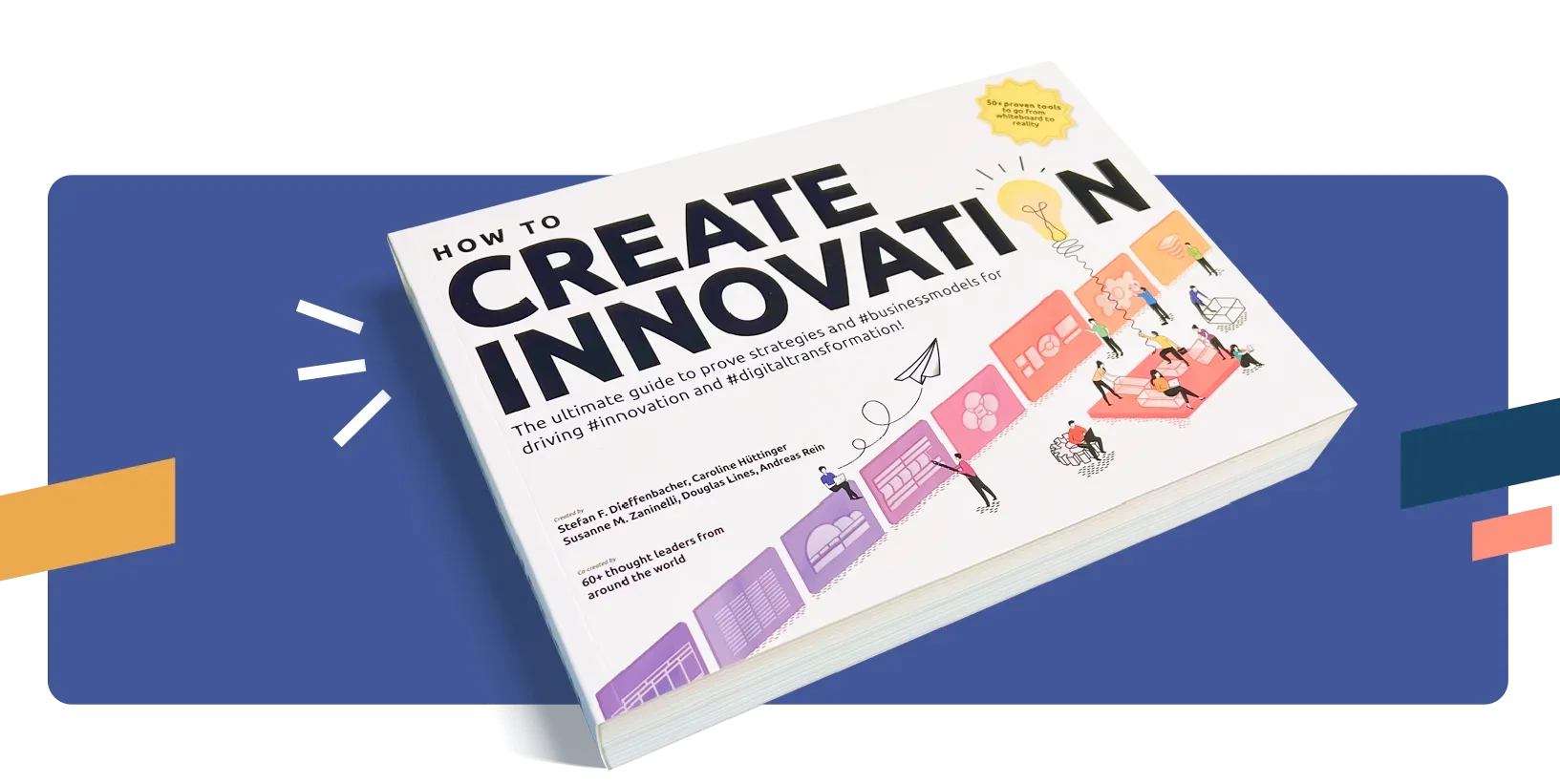






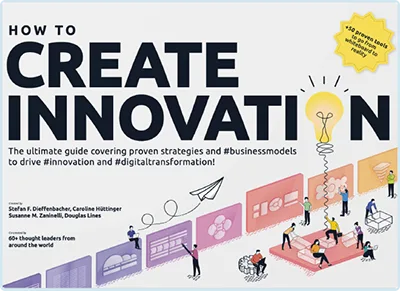 Book How to Create Innovation
Book How to Create Innovation